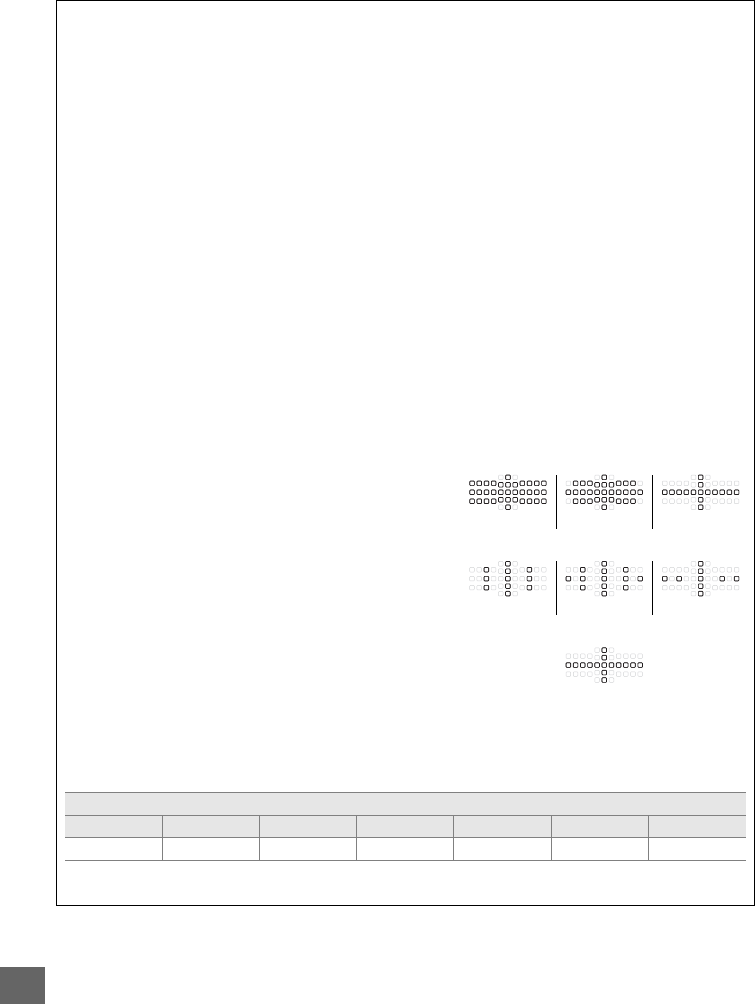
296
n
D Notes on Optional Flash Units
Refer to the Speedlight manual for detailed instructions.
If the flash unit supports CLS, refer
to the section on CLS-compatible digital SLR cameras.
The D610 is not included in the
“digital SLR” category in the SB-80DX, SB-28DX, and SB-50DX manuals.
If an optional flash unit is attached in shooting modes other than j, the flash will fire with
every shot, even in modes in which the built-in flash can not be used.
Note that optional
flash units can not be used in movie live view (0 57) or while HDR is in effect (0 139).
i-TTL flash control can be used at ISO sensitivities between 100 and 6400.
At values over
6400, the desired results may not be achieved at some ranges or aperture settings.
If the
flash-ready indicator flashes for about three seconds after a photograph is taken, the flash
has fired at full power and the photograph may be underexposed.
When an SC-series 17, 28, or 29 sync cable is used for off-camera flash photography, correct
exposure may not be achieved in i-TTL mode.
We recommend that you select standard i-TTL
flash control.
Take a test shot and view the results in the monitor.
In i-TTL, use the flash panel or bounce adapter provided with the flash unit.
Do not use other
panels such as diffusion panels, as this may produce incorrect exposure.
The SB-910, SB-900, SB-800, SB-700, SB-600, and SB-400 provide red-eye reduction, while the
SB-910, SB-900, SB-800, SB-700, SB-600, and SU-800 provide AF-assist illumination with the
following restrictions:
• SB-910 and SB-900: AF-assist illumination is available
with 17–135 mm AF lenses, however, autofocus is
available only with the focus points shown at
right.
• SB-800, SB-600, and SU-800: AF-assist illumination is
available with 24–105 mm AF lenses, however,
autofocus is available only with the focus points
shown at right.
• SB-700: AF-assist illumination is available with 24–
135 mm AF lenses, however, autofocus is
available only with the focus points shown at
right.
In mode P, the maximum aperture (minimum f-number) is limited according to ISO
sensitivity, as shown below:
Maximum aperture at ISO equivalent of:
100 200 400 800 1600 3200 6400
455.67.181011
If the maximum aperture of the lens is smaller than given above, the maximum value for
aperture will be the maximum aperture of the lens.
17–19 mm 20–105 mm 106–135 mm
24–34 mm 35–49 mm 50–105 mm
24–135 mm


















